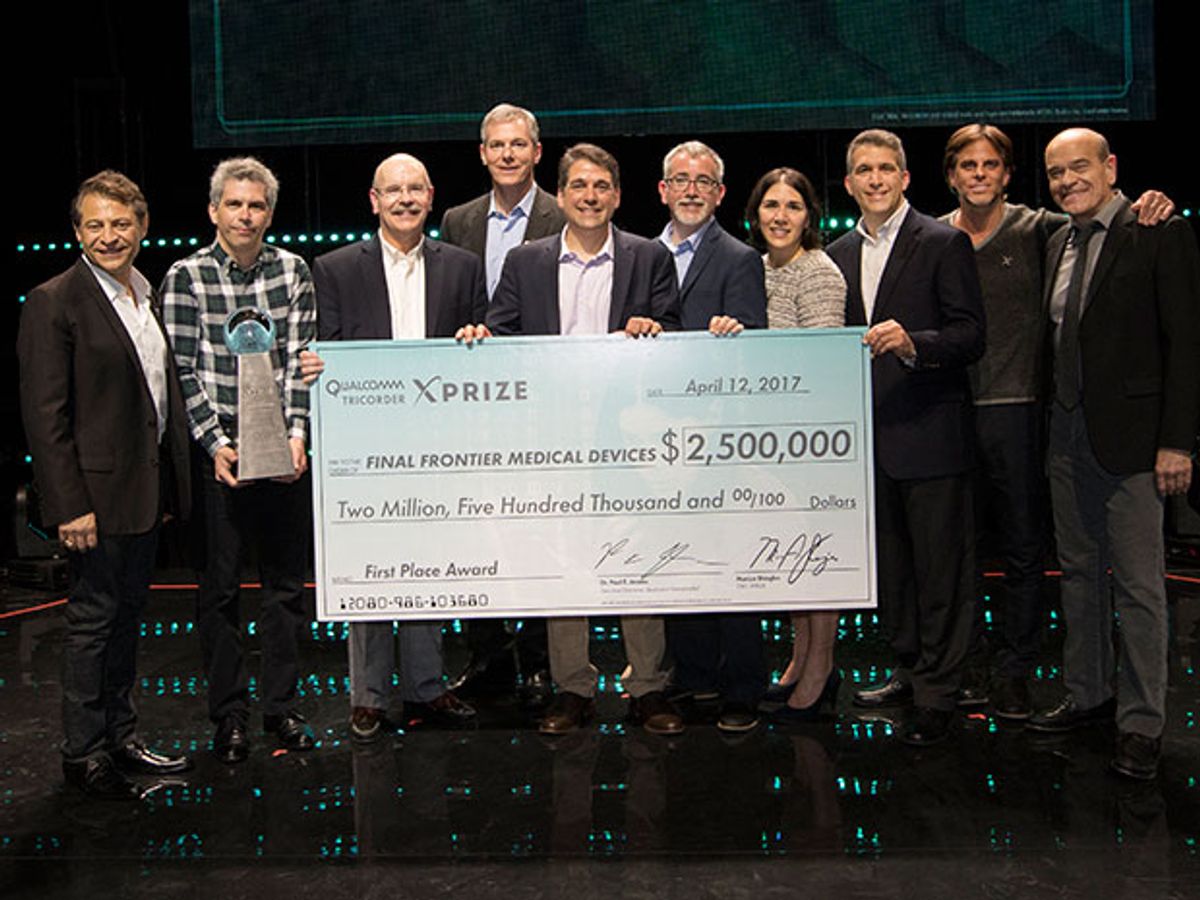The results are in! Wait, first we should double-check that we’re reading from the right cue card…
The winner of the long-awaited Qualcomm Tricorder XPRIZE is Pennsylvania-based Final Frontier Medical Devices. Final Frontier developed a mobile device able to diagnose 13 health conditions while continuously monitoring five vital signs. The award was announced yesterday at a ceremony in Los Angeles.
“We could not be more pleased with the quality of innovation and performance of the teams who competed,” said Marcus Shingles, CEO of the XPRIZE Foundation, in a statement.
In 2012, the nonprofit company XPRIZE and U.S. chipmaker Qualcomm launched the competition to incentivize companies to build a medical tricorder–a portable device to rapidly diagnose medical conditions—right out of the scenes of “Star Trek.” The original field, comprising 312 applicants, was narrowed to 10 finalists in August 2014.
All of us Trekkies held our breath for the final announcement last spring, but organizers pushed back the contest’s timelines due to poor initial results. In early tests, the prototype tricorders fell short of being able to actually diagnose the required set of health conditions such as anemia and sleep apnea.

But the past year must have gone well for the devices’ developers, because now there’s a winner. Final Frontier, helmed by two brothers (Basil Harris, an emergency room physician, and George Harris, a network engineer), spent four years creating and testing DxtER (pronounced “dexter”). The device relies upon a group of non-invasive sensors, such as a blood pressure cuff and temperature monitor, that collect data on vital signs, body chemistry, and biological function. That data is fed into the “brains” of the machine, a set of algorithms trained with actual patient data.
“The tricorder that we’re developing for this competition is more advanced than the tricorder from the Star Trek series,” said Basil Harris in a recent XPrize video, although he laughingly admitted the Star Trek tricorder has three LED lights, while theirs only has two.
The Final Frontier team takes home the top prize of $2.5 million. A second-place prize of $1 million was granted to Taiwan-based finalist, Dynamical Biomarkers Group, led by Harvard Medical School associate professor Chung-Kang Peng. All competing teams had acess to a dedicated Food and Drug Administration (FDA) help desk to facilitate the development of the devices. The organizers plan to continue to facilitate the testing and development of the tricorders, according to the award statement, and to swiftly manufacture and distribute them upon regulatory approval.
Megan is an award-winning freelance journalist based in Boston, Massachusetts, specializing in the life sciences and biotechnology. She was previously a health columnist for the Boston Globe and has contributed to Newsweek, Scientific American, and Nature, among others. She is the co-author of a college biology textbook, “Biology Now,” published by W.W. Norton. Megan received an M.S. from the Graduate Program in Science Writing at the Massachusetts Institute of Technology, a B.A. at Boston College, and worked as an educator at the Museum of Science, Boston.



